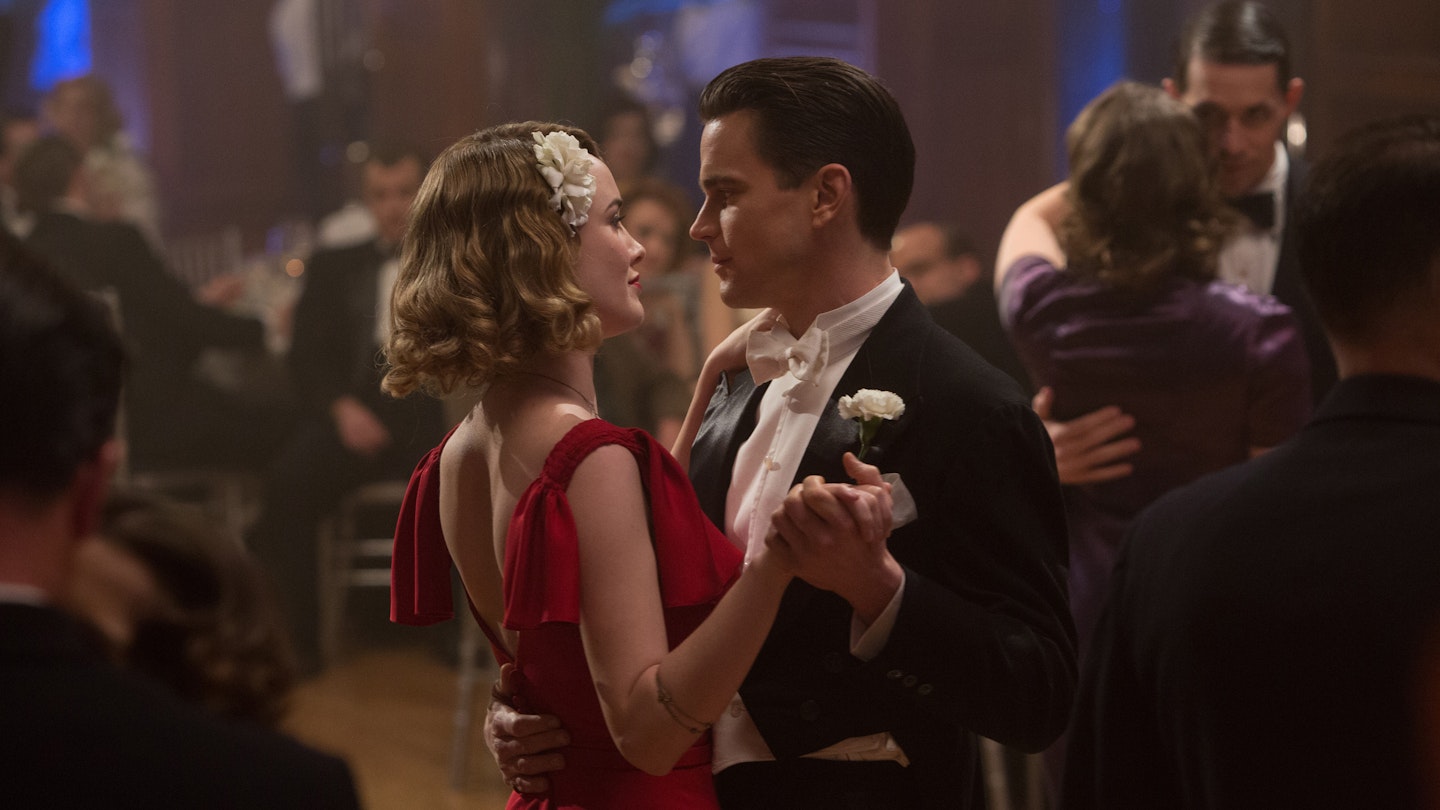With just one, lonely screenwriting credit to his name — 1938’s Three Comrades — F. Scott Fitzgerald’s Hollywood career was a humiliation but the barren experience fed some of his richest fiction: the tragic-comic Pat Hobby stories and, most notably, his final novel, The Last Tycoon, a disguised biography of legendary MGM “Boy Wonder”, Irving Thalberg. Fitzgerald never finished the book. Amazon’s series goes ahead and fills in the gaps but it’s all cement and no bricks.
Beautiful to look at but weirdly lifeless.
The dynamic pilot, released last year, suggests a feisty ride into a parallel 1930s universe. Pincered by corporate vultures and rabid unions, we follow underdog studio Brady-American as it scrabbles for a hit while trying to contain its own internal power-struggles. On one side: Kelsey Grammer’s ruthless mogul, Pat Brady. On the other, Monroe Star, his Jewish wunderkind creative director played by Matt Bomer. Much like Thalberg, Stahl is a prolific Mr Fix it, a Hollywood Midas who turns turkeys into gold, but his control over Brady goes beyond the movies. Not only is Brady’s daughter (Lily Collins) infatuated with him – he’s also fucking his wife (Rosemarie DeWitt). When Stahl starts another affair with Dominique McElligott’s two-faced Irish waitress, you’re primed for a stew of scandalous period soap and Machiavellian studio politics.
Three episodes in, it soon becomes apparent you’re not really watching a Fitzgerald adaptation at all. You’re watching Amazon’s punt at a 1930s Mad Men — an industrial saga of professional ambition and personal anguish, filmed in lush amber tones that echo a Golden Era turning to rust. It looks gorgeous but it’s all surface. “Ordinary is the enemy,” goes Stahl’s motion-picture mantra and, ironically, ordinary is exactly what The Last Tycoon turns out to be.
Monroe Stahr is the show’s Jupiter – a Golden Age gas giant the rest of the cast orbit around. Ghosted by the death of his starlet wife, Bomer crafts a brittle anti-hero whose bluster acts as cover for internal turmoil but the longer the show wheezes on, the weaker his pull gets and Stahr’s reduced to a bit part in his own show. This never would’ve happened if The Last Tycoon was designed as a compact mini-series but padded out to nine episodes, the pace dries up and dreaded show-bloat sets in. Pretty soon, every minor character is monologuing a back-story or over-inflated with an inert subplot. Entire episodes feel like 50-minute longueurs. No cliff-hangers. Just mild dramatic dangling.
There are some colourful characters, not least the underused Annika Marks as a venomous diva who demands to see her director’s cock before shooting a movie. But the misjudged beats are countless: insufferable musical numbers featuring a helium-voiced Shirley Temple clone; Fritz Lang reimagined as a monocled tyrant with an S&M fetish; and Stahl momentarily coming over all Oskar Schindler when he ships over a Viennese orchestra marked for Nazi processing (an anti-Semitism plot thread introduced in the pilot just vaporises).
Draw a graph off the show’s run and you end up with a capital N. It starts on a high, enters a slow-sliding decline, then jolts back up for the final episode. Bingers braving the slog will be rewarded with a crescendo of murder, cover-ups, hostile splits, and Stahl trapped in a tragic, sham showmance but you wonder how many will stick around for it.
Ultimately, you’re left asking: who is this show aimed at? The Fitzgerald faithful will flinch at the infinite artistic liberties taken with the novel; those seeking romance will find its heart doesn’t beat hard or fast enough; and those craving a Hollywood exposé will find its apocryphal scandals intensely beige. Will The Last Tycoon get a second-series? An open-ended conclusion gambles on a definite-maybe but you suspect the show will wind up echoing the fate of its source material– it’ll be left unfinished.
Strong pilot, strong finale but in-between? Hours and hours of luscious mediocrity. Bomer and Collins are sharply cast but this ’30s Hollywood saga is prestige drama as period exhibit: beautiful to look at but weirdly lifeless.
